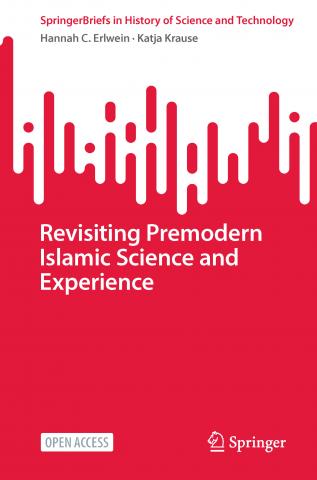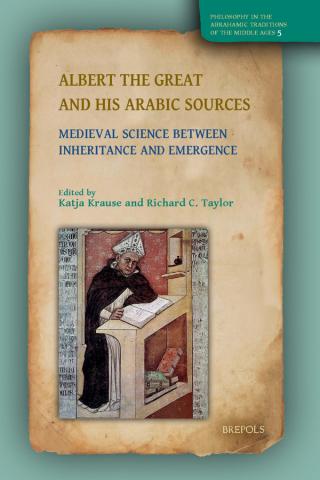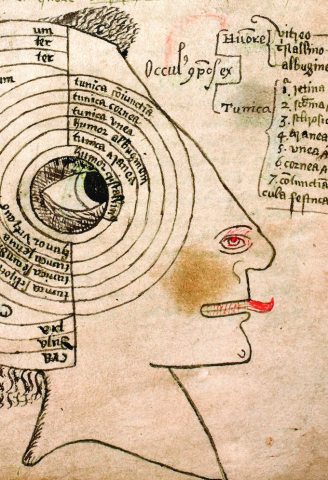
Room B18/001
Katja Krause is a historian of science and a philosopher specializing in medieval thought and beyond. She received her PhD in 2014 from King’s College London for her dissertation entitled “Aquinas’ Philosophy of the Beatific Vision: A Textual Analysis of his Commentary on the Sentences in Light of Its Greek, Arabic, and Latin Sources.” After her doctorate, Krause was awarded a two-year postdoctoral fellowship at the Max Planck Institute for the History of Science, where she worked on a series of articles examining the empirical turn of the thirteenth century that emerged from the appropriation of Averroes’ commentaries on the corpus Aristotelicum. In 2016/17 she served as Assistant Professor in Medieval Thought at Durham University, UK, and in 2017/18 was a postdoctoral fellow at Harvard Divinity School, supported by the Deutsche Akademie der Naturforscher Leopoldina – Nationale Akademie der Wissenschaften. Katja Krause is currently Leader of the Max Planck Research Group “Experience in the Premodern Sciences of Soul & Body, ca. 800–1650,” jointly with a professorship at the Technische Universität Berlin.
Katja Krause has recently completed the edited volumes Premodern Experience of the Natural World in Translation (edited with Maria Auxent and Dror Weil, Routledge 2022), Contextualizing Premodern Philosophy: Explorations of the Greek, Hebrew, Arabic, and Latin Traditions (edited with Luis Xavier López-Farjeat and Nicholas Oschman, Routledge 2023), and Albert the Great and His Arabic Sources: Medieval Science between Inheritance and Emergence (edited with Richard C. Taylor, Brepols 2024). Her translation of Thomas Aquinas’s Commentary on Peter Lombard’s Sentences IV.49.2, with introductions and notes, appeared in autumn 2020 with Marquette University Press.
Projects
Selected Publications
Erlwein, Hannah and Katja Krause (2025). Revisiting Premodern Islamic Science and Experience. SpringerBriefs in History of Science and Technology. Cham: Springer. https://doi.org/10.1007/978-3-031-76085-3.
Read More
Krause, Katja and Richard C. Taylor, eds. (2024). Albert the Great and His Arabic Sources: Medieval Science Between Inheritance and Emergence. Philosophy in the Abrahamic Traditions of the Middle Ages 5. Turnhout: Brepols. https://doi.org/10.1484/M…
Read More
Krause, Katja (2024). “Source Mining: Arabic Natural Philosophy and ‘experientia’ in Albert the Great’s Scientific Practices.” In Albert the Great and His Arabic Sources: Medieval Science Between Inheritance and Emergence, ed. K. Krause and R. C…
Read More
Krause, Katja and Richard C. Taylor (2024). “Albert’s Philosophical scientia: Origins, Geneses, Emergences.” In Albert the Great and His Arabic Sources: Medieval Science Between Inheritance and Emergence, ed. K. Krause and R. C. Taylor, 9–41…
Read More
Media
Past Events
Lecture
Metaphysics beyond Ontology and Aesthetics
MORELecture
Francis Bacon’s Nomological Network of Nature
MOREWorkshop
The Scholarly Experience: Wisdom in the Premodern Syriac World
MOREResearch Colloquium
Albert the Great on the Habit of Physics
MOREConference
Albert the Great on the Human Being: An Inter-disciplinary Colloquium
MOREWorkshop
Experiencing Nature through Old and New Epistemes around the Globe
MOREConference
Philosophical Perspectives on Medieval Theories of Science
MORESymposium
The Future of Science: Disciplines in Disarray
MOREReading Group
Nerves: A Preparation for, and Companion, to the New Working Group: “Knowing Nerves: From Animal Spirits to Neural Nets"
MOREReading Group
Scientific Experience and the Scientific Expert II: The “Layperson,” “Common Person,” “Public,” “Non-Elite,” “Non-Scientist”
MOREReading Group
Scientific Experience and the Scientific Expert I: The Scientist
MOREReading Group
The Senses in Science and the Sciences of the Senses II: Loss or Lack of Sense and Sensations
MOREReading Group
The Senses in Science and the Sciences of the Senses I: Taste, Tasting, and Having Taste
MOREReading Group
Experience as a Category of Analysis in Historical Epistemology
MOREResearch Colloquium
Know Thy Experience
MOREReading Group
Signification in Artificial Languages in Early Modern European Thought
MORE



